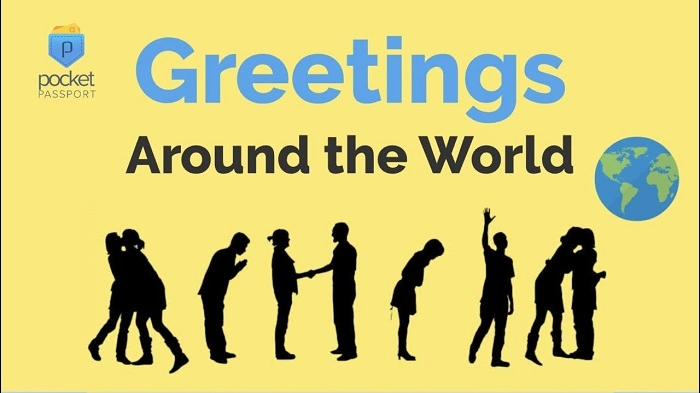Introduction: The Power of Good Wishes
“Wishing you nothing but the best” is a popular expression often used to convey heartfelt good wishes for someone’s future endeavors. It is a phrase that resonates with positivity and kindness, signifying a genuine desire for another person’s success and happiness. In this article, we will delve into the meaning, context, and significance of this phrase, exploring how it can be used in different situations to uplift and encourage others.
What Does “Wish You Nothing But the Best” Mean?
The phrase “wish you nothing but the best” essentially means expressing the purest and most sincere wishes for someone’s well-being, success, and happiness. It goes beyond a simple “good luck” or “best wishes,” as it emphasizes an unwavering desire for the person to experience only the best things in life.
Origins of the Phrase
The exact origin of the phrase is not clearly documented, but it is believed to have evolved from older expressions of goodwill in English-speaking cultures. Over time, this phrase has become a standard part of everyday language, commonly used in both personal and professional contexts.
Synonyms and Variations
There are many ways to express the same sentiment as “wish you nothing but the best.” Some common variations include:
- Wishing you all the best
- Wishing you success and happiness
- May everything go your way
- Hoping for the best for you
- All the best for your future
These variations all convey the same heartfelt intention: to wish someone success and happiness in their future endeavors.
When to Use “Wish You Nothing But the Best”
The phrase “wish you nothing but the best” can be used in a wide variety of situations, from formal occasions to casual encounters. It is a versatile expression that can be adapted to different contexts.
In Personal Relationships
In personal relationships, the phrase is often used when parting ways with a friend or loved one. Whether they are moving away, starting a new job, or embarking on a new chapter in their life, this expression conveys your heartfelt support and encouragement.
Example 1: Farewell Wishes
“Goodbye, Sarah! I wish you nothing but the best as you move to New York for your new job. I know you’ll do amazing things there!”
In Professional Settings
In the workplace, the phrase can be used to offer encouragement to a colleague or client. Whether someone is transitioning to a new role, pursuing further studies, or starting a business venture, this expression shows that you care about their success.
Example 2: Professional Encouragement
“I’ve enjoyed working with you on this project, and I wish you nothing but the best in your future endeavors. I’m sure you’ll continue to excel.”
In Special Occasions
This phrase is also commonly used during special events such as weddings, birthdays, graduations, or other milestones. It’s a way of celebrating someone’s achievements and showing your support for their future.
Example 3: Wedding Wishes
“Congratulations on your wedding day, John and Emily! I wish you nothing but the best in your new life together.”
The Psychological Impact of Positive Wishes
Words of encouragement, like “wish you nothing but the best,” have a significant psychological impact on both the giver and the receiver. Here are a few reasons why offering positive wishes can be so meaningful:
Boosts Confidence and Morale
When you wish someone the best, it can uplift their spirits and boost their confidence. This simple gesture lets them know that others believe in their potential and support their journey.
Creates a Sense of Connection
Offering heartfelt good wishes fosters a sense of connection and camaraderie between people. It’s a way to show that you care about someone’s happiness and success, which strengthens relationships.
Encourages Positivity
Positive words encourage a mindset of optimism and hope. When someone hears, “I wish you nothing but the best,” it can help them stay focused on the positive aspects of their journey and navigate challenges with a hopeful attitude.
Using “Wish You Nothing But the Best” in Different Cultures
The sentiment behind “wish you nothing but the best” is universal, but the exact wording and the way it is expressed may vary across different cultures and languages.
Western Culture
In Western cultures, especially in English-speaking countries, the phrase “wish you nothing but the best” is commonly used to express goodwill. It can be used in both formal and informal settings, making it a versatile phrase for a variety of occasions.
Eastern Cultures
In Eastern cultures, expressions of goodwill often focus on health, prosperity, and harmony. For example, in Chinese culture, people might say “祝你一切顺利” (zhù nǐ yīqiè shùnlì), meaning “wish you all the best.” In Japanese, “幸運を祈ります” (kōun o inorimasu) translates to “I wish you good luck,” which carries a similar sentiment.
Middle Eastern Cultures
In Middle Eastern cultures, offering blessings is a common way to express good wishes. Phrases such as “الله يوفقك” (Allah yuwafiqak) in Arabic, meaning “may God grant you success,” carry a deep cultural and spiritual significance.
Why “Wish You Nothing But the Best” is Important
The importance of expressing good wishes cannot be overstated. Here are a few reasons why this phrase, in particular, holds such weight:
Builds Positive Relationships
By expressing that you wish someone “nothing but the best,” you are signaling your genuine care for their well-being. This fosters trust and positivity in your relationship, whether it’s personal or professional.
Strengthens Support Networks
When people feel supported, they are more likely to succeed. Offering words of encouragement can strengthen the networks of support around an individual, increasing their chances of thriving in their endeavors.
Spreads Positivity
In a world that can sometimes feel overwhelming, offering positive wishes is a simple yet powerful way to make someone’s day better. It can uplift others, creating a ripple effect of kindness and good energy.
FAQs
Is it appropriate to say “wish you nothing but the best” in professional emails?
Yes, it is appropriate to use the phrase in professional emails, especially when someone is leaving a company or starting a new job.
Can “wish you nothing but the best” be used for someone going through tough times?
Yes, it can be used as a way to offer support and encouragement, though you might want to pair it with more specific words of empathy for tough situations.
What’s the difference between “wish you nothing but the best” and “good luck”?
“Wishing you nothing but the best” is a broader, more heartfelt expression, while “good luck” is often seen as more casual and specific to a single event or task.
Can I use “wish you nothing but the best” for family members?
Absolutely! It’s a warm and supportive phrase suitable for any relationship, including with family members.
How can I personalize “wish you nothing but the best”?
You can personalize it by adding specific details, such as: “I wish you nothing but the best in your new role at the company” or “I wish you nothing but the best on your upcoming trip to Europe.”
A Simple Yet Powerful Expression
In conclusion, “wish you nothing but the best” is a timeless expression that carries deep meaning and positivity. Whether used in personal, professional, or celebratory contexts, this phrase can uplift, inspire, and encourage those around us. By wishing others the best, we not only show our support but also contribute to a culture of kindness and encouragement that can make the world a better place.



